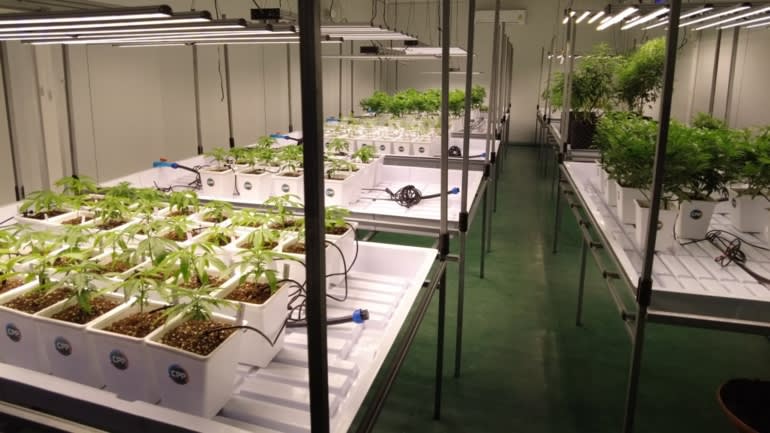
Thailand companies make marijuana investments after legal shift
- Blog
-
Feb 10
- Share post

Thailand’s Green Gold Rush: Cash in on Thailand’s marijuana and hemp business, now worth over 1.2 billion baht ($35 million)! With the decriminalization of cultivation and use of these plants, companies large and small are flocking to invest, making Thailand a budding hub for cannabis commerce. Breaking News: Starting Thursday, Thailand’s Food and Drug Administration will remove marijuana and hemp from the category 5 narcotics list, opening the doors for anyone looking to get in on the action. Thanks to the Pluk Kan mobile app, registering a legal marijuana-related business is as easy as pie. As the first country in Southeast Asia to decriminalize marijuana, Thailand is making headlines and catching the eye of businesses worldwide. One such company is Charoen Pokphand Foods (CPF), the food and beverage arm of Thailand’s largest conglomerate, CP Group. In a joint venture with renewable energy developer Gunkul Engineering, CPF is set to produce cannabidiol (CBD)-infused food and drinks, expected to be sold through its retail channels.
According to CPF’s CEO, Prasit Boondoungprasert, “hemp is the new economic crop that will be turned into value-added products for growing domestic and international demand.” This collaboration will not only focus on marijuana cultivation, but also on developing top-tier products. But CPF isn’t the only big player in the game. Saha Pathana Inter-Holding, a subsidiary of consumer products giant Saha Group, is teaming up with United Power of Asia and Golden Triangle Group to invest 370 million baht in cultivating marijuana in the northern city of Chiangrai. The goal is to extract the plant’s essence and supply clients making medicines, foods and beverages. The marijuana industry is projected to reach a whopping 70 billion baht by 2024, according to the Thai Industrial Hemp Trade Association. And the numbers are no joke – the Global Cannabis Report states that the legal marijuana market is worth $100 billion globally. Thailand took its first step toward decriminalizing marijuana in 2019, when medical use was legalized. In 2020, the government approved its use as an additive to food and drinks, paving the way for food processors and restaurants to cook up hemp- and marijuana-infused delights.
The Bhumjaithai Party, the second-largest party in Thailand’s ruling coalition, played a crucial role in the decriminalization of marijuana. Its leader, Anutin Charnvirakul, made it a cornerstone of his campaign through the 2019 general election, ultimately winning 51 seats in the lower house. This significant victory allowed the party to have a strong say in the coalition and support Prayuth Chan-ocha as prime minister. Anutin, now the public health minister, has been a vocal advocate for marijuana legalization. Despite criticism for his initial response to the COVID-19 pandemic, he remained steadfast in his support and saw the legalization of kratom, a less potent psychoactive plant native to Southeast Asia, as a promising step forward. Starting Thursday, possession of marijuana in Thailand will no longer be punishable by a prison sentence of up to 15 years. With this legal change, more than 4,000 inmates who were charged with violating the law or serving criminal sentences for marijuana-related offenses will be released. Thailand is not the only country easing marijuana laws. Canada legalized recreational use of the drug in 2018, and Uruguay has allowed medical and recreational use since 2013.
Many other countries are also moving toward decriminalization, recognizing marijuana as a valuable crop for impoverished farmers. In a bid to promote marijuana cultivation, the Ministry of Agriculture plans to distribute 1 million marijuana plants to farmers free of charge. This initiative aims to jumpstart cultivation in remote areas and turn it into a lucrative cash crop. While decriminalization is a major step forward, the legality of marijuana consumption remains in a gray area in Thailand. Home use of the plant is permitted for medical purposes, but there are no laws in place to regulate other uses. Extracts containing more than 0.2% of the main psychoactive compound, tetrahydrocannabinol (THC), are still considered a category 5 narcotic. Not only conglomerates but also smaller businesses are jumping on the green bandwagon. Sri Trang Agro Industry, Thailand’s largest rubber grower and exporter, has invested 26 billion baht in marijuana and hemp cultivation. Eternal Energy, a leading renewable power developer, has also made a hefty investment of 680 million baht in marijuana cultivation for CBD.
As stated by the CEO, Worasak Kriangkomol, “we have earmarked more investment money for plantation expansion, as we realize that demand is on the rise globally.” Even smaller companies like 88Cannatek are no strangers to the emerging market. With an investment of 177 million baht, the company is focused on growing marijuana for CBD-infused functional foods and cosmetics. Founder and CEO, Pornprasith Sibunruang, shares that over half of their investment was through crowdfunding, demonstrating the high level of interest in this new industry. Collaborating with leading growers in the U.S., 88Cannatek is well-equipped with expert knowledge on marijuana cultivation and extraction techniques. With a plantation in Chiangrai and contracted farms in central Thailand, the company currently produces 250 kg to 400 kg of CBD annually and aims to increase that to 3,000 kg over the next few years. The potential for profits is undeniable and the demand is only expected to grow – now is the time to get in on the green gold rush in Thailand.
